June 7, 2025 | 16:20 GMT +7
June 7, 2025 | 16:20 GMT +7
Hotline: 0913.378.918
June 7, 2025 | 16:20 GMT +7
Hotline: 0913.378.918
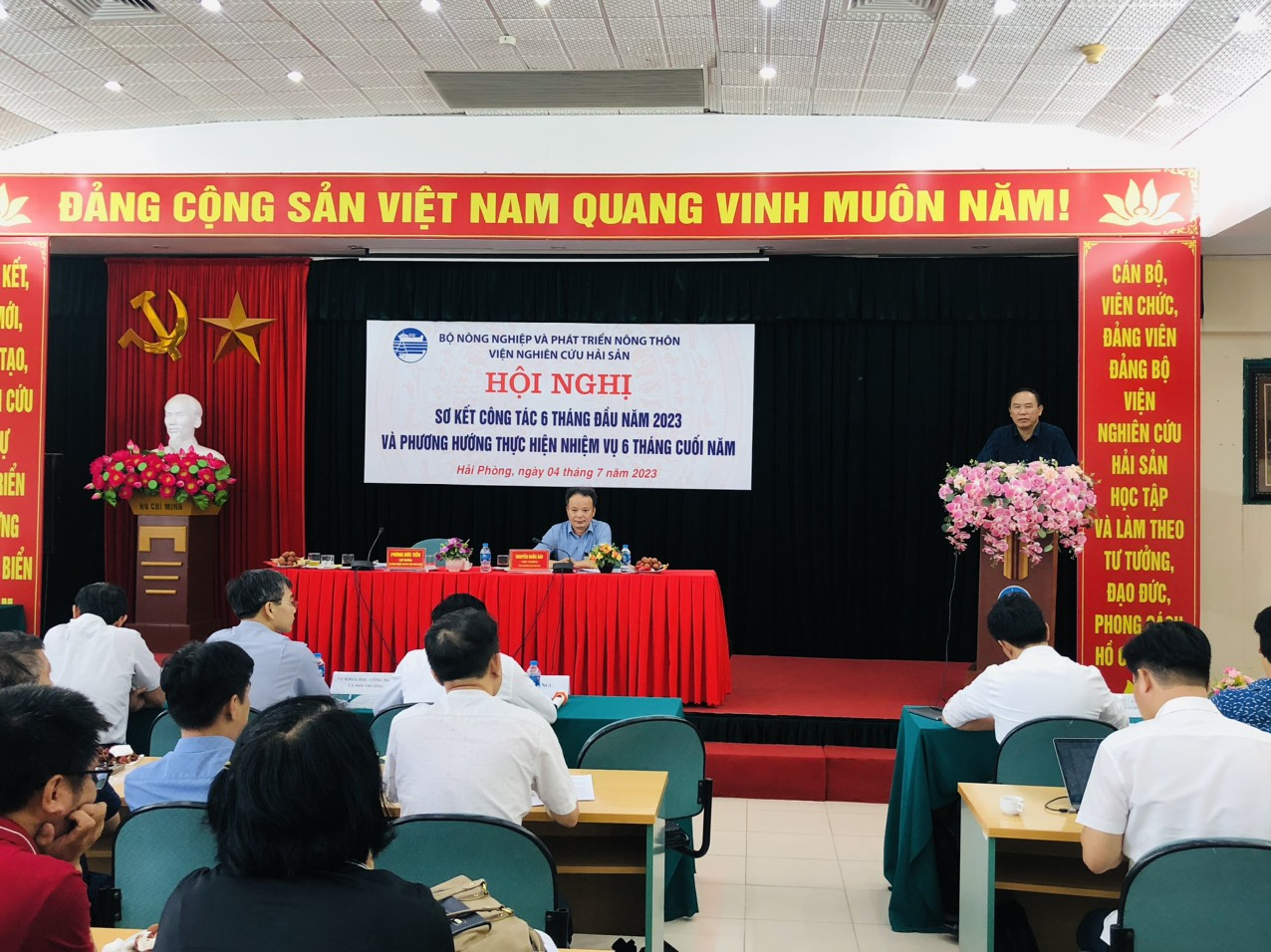
Deputy Minister of Agriculture and Rural Development Phung Duc Tien chairing the conference. Photo: Dinh Muoi.
The Research Institute for Marine Fisheries (RIMF) has reportedly carried out 44 scientific and technological tasks at all levels including 21 transitional tasks and 23 new tasks between January 1 and June 2023. In terms of basic research, the Institute primarily focused on forecasting marine resources, fishing grounds, biodiversity and marine conservation.
The Institute has established 30 forecasts for tuna, skipjack, gill, fin, small pelagic fish, etc. within the first six months of 2023. The institute's forecasts for fishing grounds were highly reliable and updated timely information on various communication channels, resulting in effective support for fishermen.
In terms of applied research, the Research Institute for Marine Fisheries promoted research on post-harvest processing and preservation technology; marine biotechnology; Seed production and marine farming among many others.
During the first half of 2023, RIMF promoted upgrades and renovations to the infrastructure supporting the fisheries industry in order to increase research capacity.
The National Office of Intellectual Property has granted the Patent of Utility Solutions to three of the institute's researches. Additionally, RIMF published articles about Science and Technology regarding Marine Fisheries to the local governments and fishermen in 28 coastal provinces and cities.
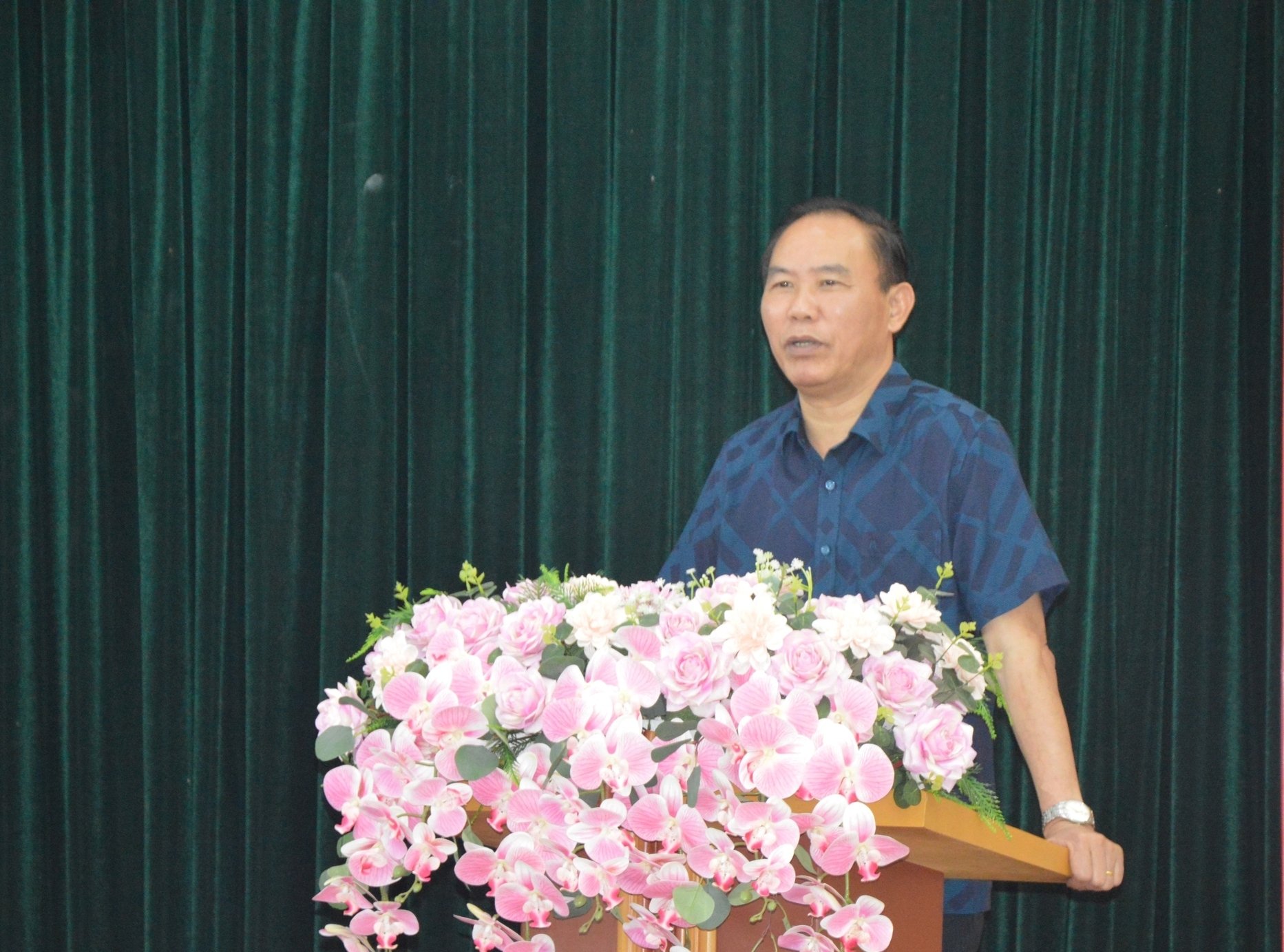
Deputy Minister Phung Duc Tien highly regarded the results achieved by the Research Institute for Marine Fisheries within the first half of 2023. Photo: Dinh Muoi.
On the other hand, the institute has promoted international cooperation in the prevention, mitigation and recycling of fishing gear waste, which pollutes local sea areas.
For the second half of 2023, the Research Institute for Marine Fisheries will focus on implementing seven key tasks, including: deploy the Development Strategy of the Research Institute for Marine Fisheries until 2030 in terms of organization; implement solutions to improve the quality of human resources with regards to professional capacity, foreign language proficiency, professional work ethics; manage and direct the implementation of scientific and technological tasks at all levels to complete research contents and deliver products according to the schedule; accelerate the implementation of the following capital construction investment projects: "Upgrading and renovating the infrastructure of Institutes in the fisheries sector", "Science and Technology Experimental Zone for Marine Fisheries"; maintain and repair the material and technical foundations of the Southern Research Institute for Marine Fisheries.
Regarding the field of marine resource research, the Research Institute for Marine Fisheries has evaluated the current status of biodiversity, resources, seafood seed sources and basic environmental factors in the coastal waters and coastal areas of Nghe An province. Subsequently, the Institute has proposed solutions to protect and sustainably exploit these marine resources.
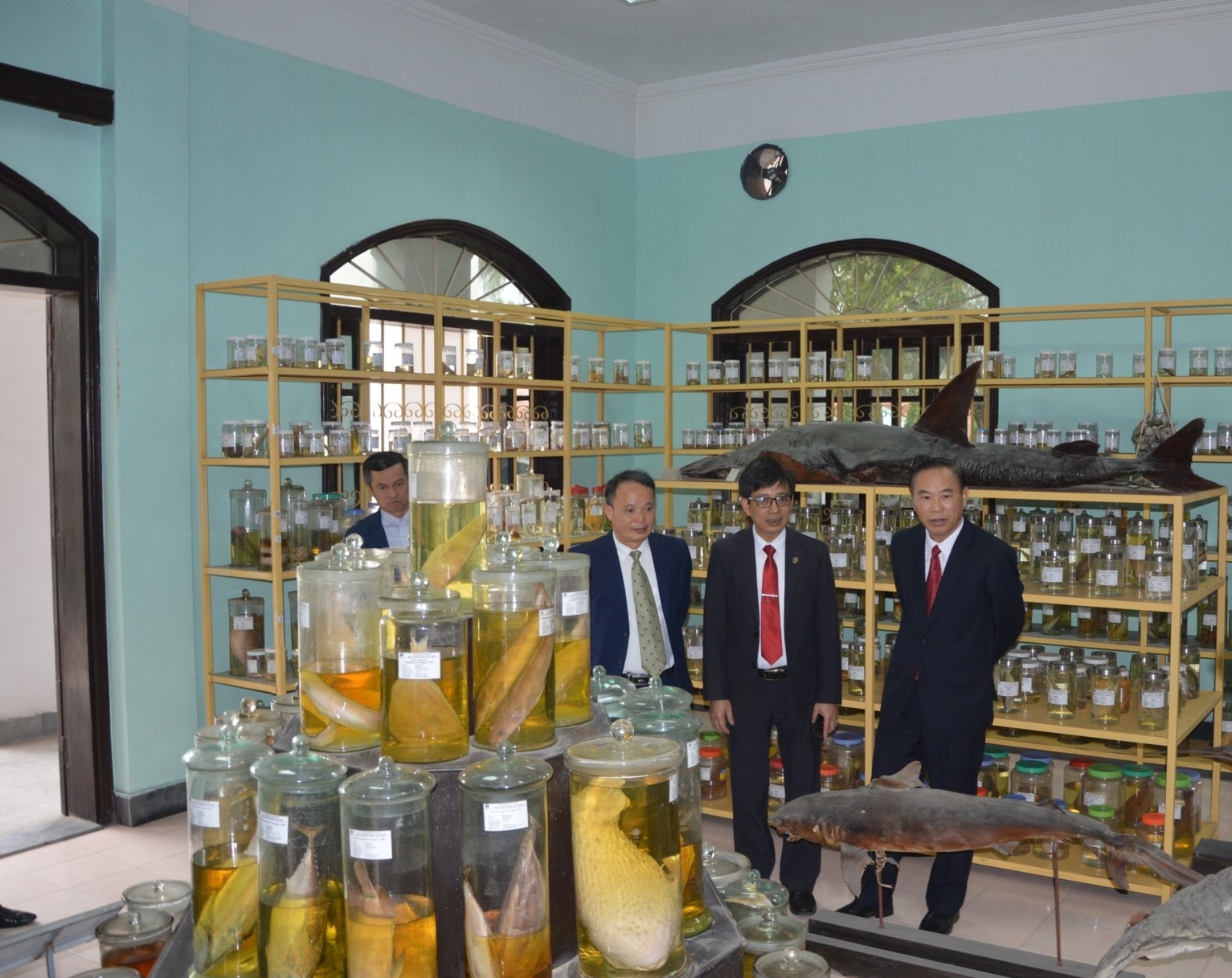
Deputy Minister Phung Duc Tien visiting the archive at the Research Institute for Marine Fisheries (early 2023). Photo: Dinh Muoi.
Additionally, the institute has compiled existing data on biodiversity, resources and seed sources, aquatic breeding grounds in Kien Giang province. The Institute will conduct surveys and collect additional data, evaluate the status of aquatic exploitation, and extract biological samples at various fishing ports and wharves.
Regarding fisheries management, the institute has reviewed, evaluated and advised the Ministry of Agriculture and Rural Development to pilot the allocation of quotas for yellowfin and bigeye tuna catches for fishing vessels in 10 provinces and cities, including: Da Nang, Quang Nam, Quang Ngai, Binh Dinh, Phu Yen, Khanh Hoa, Ninh Thuan, Binh Thuan, Ba Ria - Vung Tau, Tien Giang.
In the field of biodiversity and marine conservation, RIMF has developed a set of criteria for the selection of cultured coral species and artificial reef areas for coral restoration.
The Research Institute for Marine Fisheries has conducted initial research on the biological and ecological characteristics of the Gracilaria eucheumoides. In addition, the institute carried out trial cultivation of this species through permanent inoculation on the basin of Ly Son Marine Protected Area in Quang Ngai province.
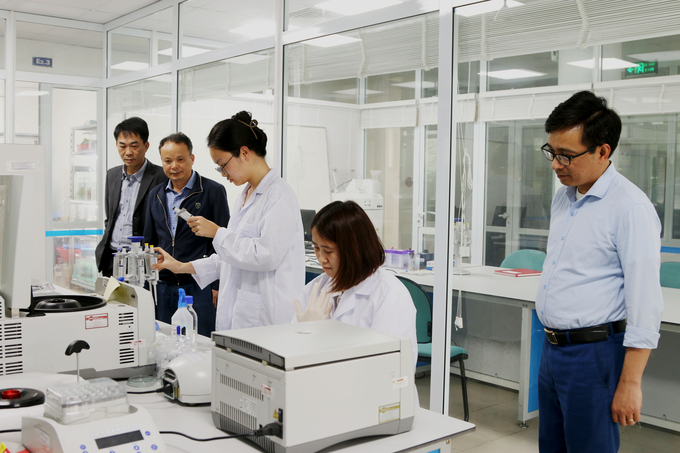
The scientific researches conducted by the Research Institute for Marine Fisheries have high practical application value. Photo: Dinh Muoi.
Furthermore, the institute finalized the draft technical process for the cultivation and restoration of corals in degraded areas and artificial reefs. RIMF has experimented with these restoration coral models in degraded reef areas within the waters of Hai Van - Son Tra and Thua Thien - Hue.
Deputy Minister of Agriculture and Rural Development Phung Duc Tien highly regarded the results achieved by the Research Institute for Marine Fisheries within the first half of 2023.
Deputy Minister Phung Duc Tien affirmed that RIMF is packed with a team of highly trained scientists; which is an indispensable resource in the implementation of the Institute's research tasks.
Regarding research topics, Deputy Minister Phung Duc Tien suggested a change in practicality to bring benefits to businesses and farmers. The research project needs business cooperation to quickly implement the research findings.
The Deputy Minister recommended the Head of RIMF be determined in the implementation of tasks, closely follow the market and implement highly applicable topics in association with socio-economic development.
In order for civil servants and cadres to be passionate about their work and devote their abilities to furthering the institute, it is essential to build an environment that is conducive to their work.
"On behalf of the Ministry of Agriculture and Rural Development, I commend the results achieved by the Research Institute for Marine Fisheries. These achievements are highly practical, however, the Institute needs to spend even more time on research in the future. It is necessary to assign individual and detailed responsibilities within the approved strategy in order to achieve the set goals. The Institute should strive to be even more specialized, with a focus on production and better scientific products," said the Deputy Minister.
Translated by Nguyen Hai Long
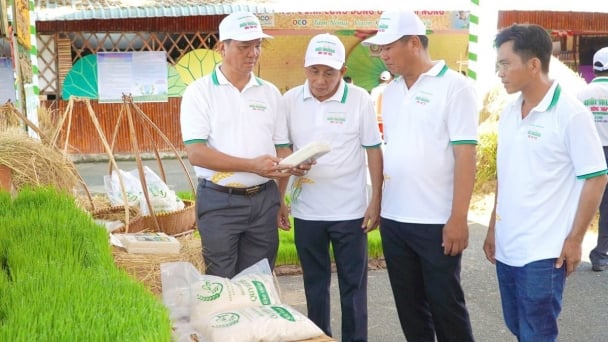
(VAN) Dong Thap has launched a meeting in response to the Action Month for the Environment under the theme 'Live Green - Join Hands for a Green Economy' at Tram Chim National Park.
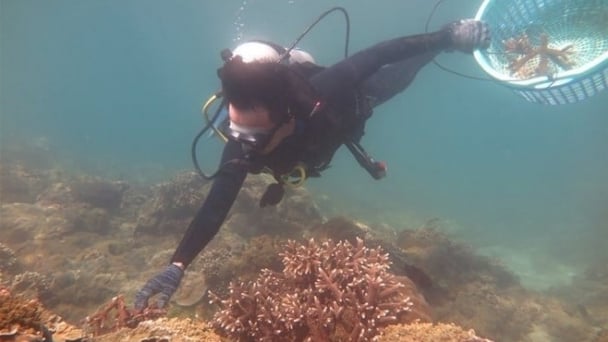
(VAN) The ocean has the capacity to absorb millions of tons of carbon, provided that mangrove forests, coral reefs, and biodiversity are protected.
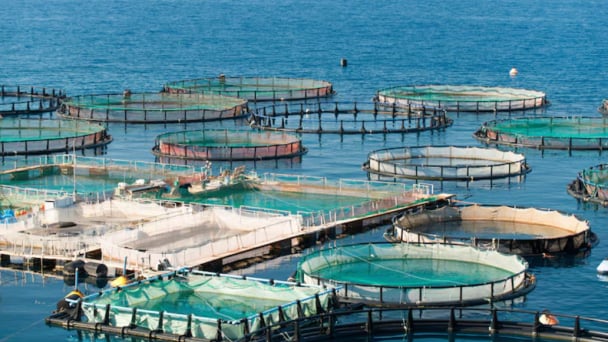
(VAN) Technology is redrawing the map of Vietnamese aquaculture: more modern, greener, and more sustainable.

(VAN) Novel process harnesses machine learning to reveal groups of genes that determine how efficiently plants use nitrogen.

(VAN) Several scientists and farmers are experimenting with soil treatment in some key durian-growing regions such as Cai Lay (Tien Giang), Dak Song, Gia Nghia, and Dak R’lap (Dak Nong).
/2025/05/25/4127-3-073637_820.jpg)
(VAN) Thanks to the promotion from an FAO-implemented project, vegetable production in greenhouses in Moc Chau has seen strong development, from 1.5 hectares in 2021 to nearly 50 hectares in 2024.

(VAN) FAO has recently supported USD 140,000 to implement the project 'Risk mitigation human-animal interface risks through disease control initiatives in pig farming.'